Kiwi for babies is not only safe but also offers numerous health benefits for their development. Many parents wonder how to give kiwi to their 8-month-old baby and if it’s safe for them. The good news is that kiwi is generally well-tolerated by babies and can be introduced into their diet around this age. When considering how to give babies kiwi, it’s essential to ensure the fruit is ripe and soft enough for easy consumption.
Some parents may choose to puree kiwi to make it easier for their little one to eat, while others may prefer to offer small, mashed pieces for them to explore. It’s important to monitor your baby for any signs of allergy or discomfort when introducing kiwi for the first time. Overall, kiwi is a nutritious addition to a baby’s diet, providing essential vitamins, minerals, and fiber to support their growth and development.
Nutritional Value of kiwi for babies
Delve deeper into the nutritional richness of kiwi for babies and its myriad benefits for your baby’s health. Packed with vital nutrients such as vitamins K, C, and E, potassium, folate, dietary fiber, copper, choline, magnesium, and phosphorus, kiwi offers a plethora of health benefits. Refer to the table below for the nutrient content in 100 grams of this fruit:
- Carbohydrate: 14.7 grams
- Protein: 1.1 grams
- Fat: 0.5 grams
- Fiber: 3 grams
- Water: 83.1 grams
- Vitamin A: 0.26 mg
- Vitamin C: 92.7 mg
- Vitamin E: 1.5 mg
- Vitamin K: 40.3 grams
- Niacin: 0.3 mg
- Vitamin B6: 0.1 mg
- Folate: 25 mg
- Calcium: 34 mg
- Iron: 0.3 mg
- Magnesium: 17 mg
- Phosphorus: 34 mg
- Potassium: 312 mg
- Sodium: 3 mg
Is Kiwi Safe for Your Baby?
As highlighted in the introduction, while kiwi is packed with nutrients, its high vitamin C content makes it acidic, potentially causing discomfort such as bowel irritations and abdominal pain, akin to oranges. Nonetheless, rest assured that kiwi is generally safe for babies and isn’t classified as an allergenic fruit. Nevertheless, consulting a pediatrician before introducing it to your baby is advisable.
Once your pediatrician has approved the introduction of kiwi to your baby’s diet, it’s essential to acclimate your child to its taste, which may take some time. Opt for ripe and sweet kiwis when preparing purees, as they’re usually favored by babies.
What Is the Right Time to Introduce Kiwi to Babies?
Introduce this delicious fruit between the 8th and 10th months of your child’s life. If your child experiences inflammation in areas of contact with diaper skin or develops abdominal issues, cease giving kiwi for babies temporarily. After a few months, retry and monitor your baby’s symptoms.
To prevent food allergies, adopt the correct method of introducing new foods, such as adding only one new food to the baby’s menu every 3 days. This way, if allergic reactions occur, you can pinpoint the allergenic food immediately. Always start with small portions, even if the food boasts exceptional properties, as overfeeding can be detrimental.
Once your baby exhibits interest and shows no signs of allergy, incorporate the desired fruit into their regular diet gradually.
| Read the article about brown rice porridge recipe for baby. |
nutritional benefits of kiwi for babies
Kiwi for babies offers numerous benefits for babies, children, and adults alike, including strengthening the immune system when incorporated into a baby’s diet. In the following sections, we’ll delve into the health advantages of kiwi in greater detail, fostering a deeper appreciation for this delectable fruit.
- High in fiber, kiwi aids in relieving constipation.
- A rich source of antioxidants, kiwi combats pathogens and bolsters immunity.
- Kiwi’s high vitamin C content enhances the body’s immunity.
- It promotes iron absorption, aids in DNA repair, and thus helps prevent certain cancers.
- Incorporating kiwi into the diet can mitigate risks associated with asthma, high blood pressure, kidney stones, and obesity, while also reducing the likelihood of blood clots.
- Kiwi contributes to maintaining healthy skin and can improve sleep quality for both adults and babies.
When to Avoid Introducing Kiwi to Babies?
Parents should exercise caution when introducing kiwi to their baby’s diet, being mindful of potential contraindications. Although kiwi’s acidity may cause skin inflammation in diaper and mouth areas, it is generally non-allergenic. However, if allergy symptoms manifest upon introducing a new food, discontinue feeding and try reintroducing it after a few months. Babies with acid reflux should wait until they are 1 year old before consuming kiwi.
While kiwi allergy is rare, children with hay fever should avoid it to prevent severe irritation around the mouth. Recognizable symptoms of kiwi allergy include mouth pain, itchy throat, and swelling of the tongue, mouth, lips, and face, sometimes accompanied by vomiting. Severe reactions such as wheezing or breathing difficulties require immediate medical attention.
It’s crucial to identify the allergenic food accurately by following proper feeding practices: introducing a new food every three days, avoiding mixing it with other foods, starting with small amounts, and gradually increasing if no sensitivity is observed. Moreover, allergies to kiwi may correlate with allergies to other fruits such as pineapple, honey, celery, papaya, peach, apple, banana, pear, cherry, sesame, plum, or avocado.
How to Choose and Store Kiwi for Babies
Opting for organic fruits is always preferable, although kiwi is relatively resilient to pesticide damage. When selecting kiwis, avoid those with visible bruises, dents, or softness/wet spots. Instead, opt for firm kiwis and allow them time to ripen. To identify the sweetest-tasting kiwi, gently press the fruit between your thumb and forefinger—if it yields slightly, it’s ripe. Unripe kiwis can be ripened within 2 days by placing them in a paper bag with a banana or apple/pear. Once ripe, kiwis can be stored in the refrigerator for three to four weeks or in the kitchen for one week.
Are Kiwi Seeds Dangerous for Babies?
No, kiwi seeds are tiny and pose no choking hazard. Furthermore, they are rich in beneficial nutrients such as vitamins, folate, potassium, fiber, and antioxidants, making them entirely edible.
Suggestions for Incorporating Kiwi into Babies’ Diet Plans
Once your baby is not allergic to kiwi and enjoys its taste, consider these suggestions to diversify and enrich their diet:
Banana and Kiwi Smoothie for babies (+10 months)
Combine ripe kiwis and sweet bananas for a delightful and nutritious smoothie. Blend the fruits together until smooth, adding water if needed for desired consistency.
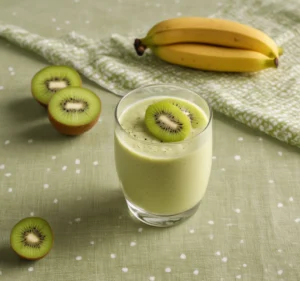
mint and kiwi smoothie for babies (+10 months)
To prepare a kiwi and mint smoothie, which is a delicious drink for hot summer days, just Peel and chop the kiwi, then add it to the blender along with the mint.
you can use honey for sweetness and add lemon syrup and ice to kiwi and mint mixture.
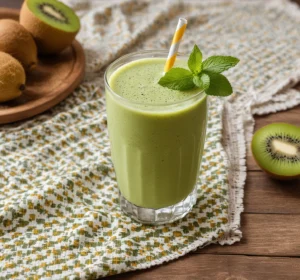
Kiwi and milk smoothie for babies (+10 months)
You need kiwi, milk and some sugar or honey to prepare this strong and special smoothie. Don’t forget to put the kiwi in the fridge an hour to cool down.
If you have calcium deficiency, this smoothie is a good alternative.
Kiwi Ice Cream (+1 year old)
Create a healthy and delicious frozen dessert by blending ripe kiwis with lime juice and honey. Freeze the mixture, periodically blending it until creamy. Serve chilled for a refreshing treat.
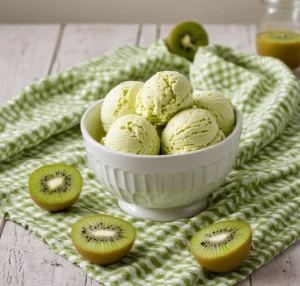
Important Points for Preparing Kiwi Ice Cream
Experiment with various fruits for flavor variation, following the same preparation method. Consistent blending results in creamier ice cream. Freezing time varies based on freezer settings. Allow the ice cream to sit at room temperature for 30 minutes before serving for optimal texture. Sugar or honey can be used for sweetness, with bananas adding both sweetness and texture. Consult your doctor before introducing new foods to your baby, and introduce each ingredient separately to monitor for any adverse reactions.
Conclusion
Introduce kiwi to your baby’s diet between eight and ten months of age, mindful of its acidity to minimize complications. If signs of allergy or inflammation occur, cease feeding kiwi and reintroduce it between 10 and 12 months. Consult a specialist doctor if there is a family history of kiwi allergies. While kiwi typically poses minimal allergy risk, inflammation in the mouth or diaper area may occur, but this nutritious fruit is generally safe. Always seek medical advice when in doubt.
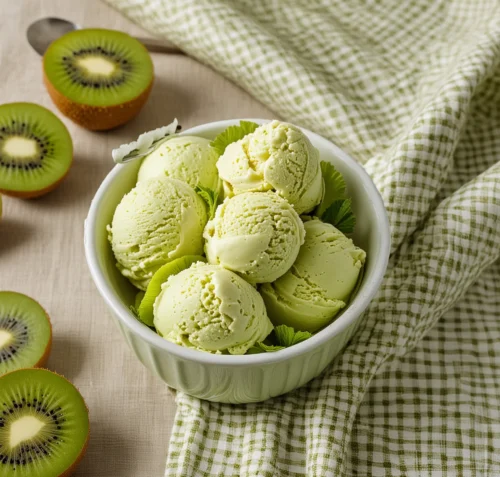
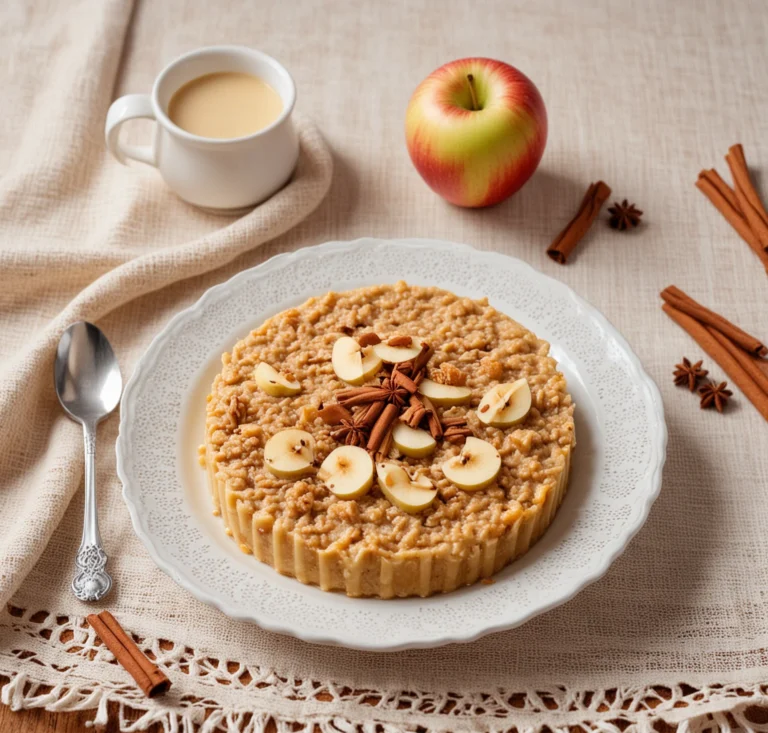
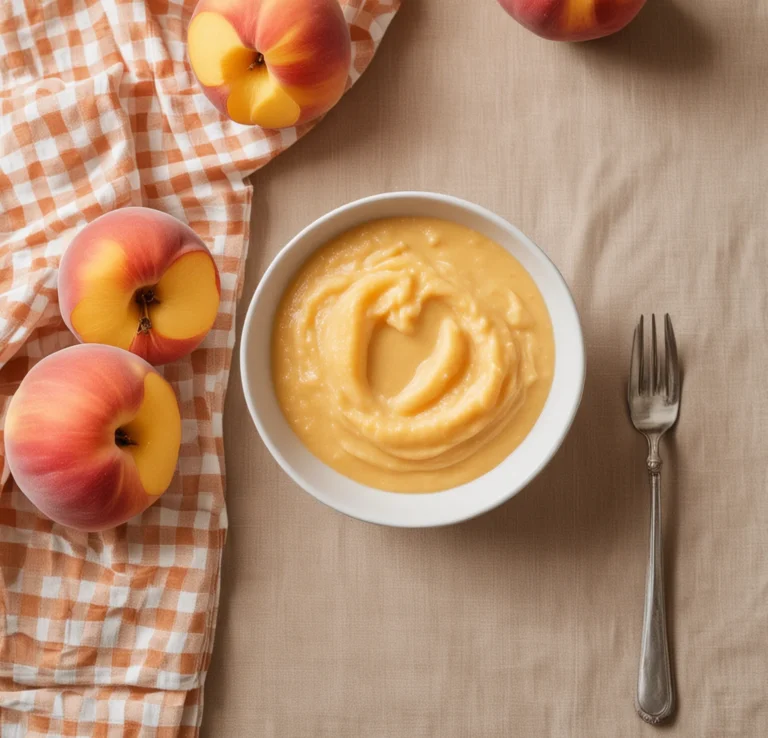

[…] Read the article about Kiwi for Babies; Kiwi Smoothies and Ice Cream for Babies. […]
[…] Read the article about Kiwi for Babies; Kiwi Smoothies and Ice Cream for Babies. […]